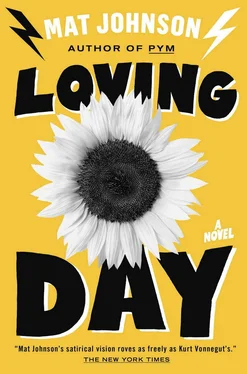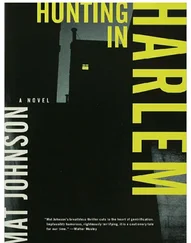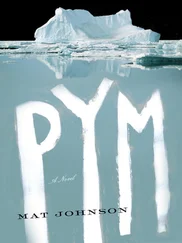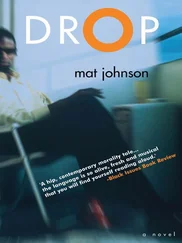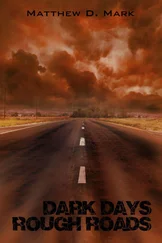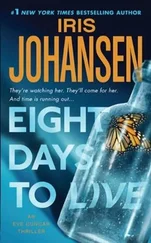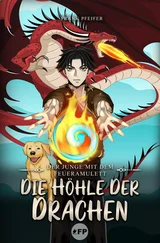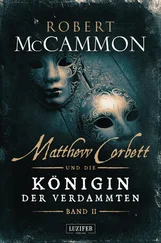“Well thanks because I don’t have a lot of black left and I really don’t want to lose the rest through slapping.”
“I need a friend right now,” Tosha says, and then she’s crying.
I’m trapped in a hug again, surprisingly. Every time I want to escape someone starts hugging me.
—
The bike is a gorgeous monument to nostalgia over practicality. Working the clutch is like trying to negotiate with a drunken bill collector. I was wrong: George ignored this bike as badly as he did his wife. Under twenty miles per hour, I’m riding down Germantown Avenue on the cobblestones and the motorcycle is shaking like it’s scared of black people. Its roar bounces off the row houses, echoing accusingly back at me. The vibration feels like the bike’s plea for me to slow down, to rethink the whole movement idea, but I don’t. I’m late, supposed to be at my dad’s place before Sirleaf comes through, but I’m looking down at the ground whenever I can because I have no idea where George’s money went. He put a new, roar-enhancing muffler on the thing, but he attached it so poorly the main noise it’s making implies it’s about to fall. The tires are narrow and I’m trying to keep my front one out of the trolley grooves. I’m looking down on the ground right in front of me the whole time, which is dangerous but I have a scar on my right knee from getting my bicycle stuck in these tracks in fifth grade and I can’t help myself. I know I’m late, but I can feel that scar on my knee now, the dead skin miraculously itching as it rubs on the inside of my jeans.
There’s somebody at the front gate. It’s not Sirleaf Day. It’s a white woman. It’s a white girl. My white girl. It’s my black girl who looks like a white girl with a tan and a bad hair day.
“You shouldn’t be out here, on your own. It’s not safe,” I tell her when I pull up. Tal pretends she doesn’t hear me over the motor so I yell it again.
“It’s okay, isn’t it? I mean, now that it turns out I’m a black? I get a pass on ‘the streets’ now, right?” There are a lot of bags. Four big ones, a human-size duffel bag, and a portfolio case. There’s a hamster cage, sitting right on the pavement. There’s a hamster inside it, running along the sides manically as if some of the local rats might try to jump it.
“Tal, what’s going on here?” I ask her, but I know.
“Irv kicked me out.” She shrugs. “I told him I wasn’t going back to Kadima. And about my GED plan. And he said if I didn’t go back to school I couldn’t stay there. So here I am.” I keep staring at the hamster. But I don’t say anything. I’m waiting till the right words come, but my tongue gets no offers. After a few seconds, Tal steps closer, puts her hand to my chin and aims my face back at her own. “I’m moving in. Dad .”
When she uses the d -word, with such palpable derision, my first thought is: I’m not old enough to be your father. The next thought is that not only am I old enough, but that I literally am her father. I look at her face. The neck, the cheekbones, the eyes, I recognize. Family. But the whole face, her face, I barely recognize it from the day before. This is a stranger. I feel some love there, or feel the need to want to love her, but I don’t know this person. The clearest emotion I can identify is a sense of responsibility. I will meet that responsibility. Or try. I will try to make sure she graduates high school. Then after, when I burn the place down, I will use the money to take care of her. I will make sure she gets out of this town. Hell, we could run together. Someplace nice, with temperate weather and a low crime rate. And then I feel the Umoja flier Tosha printed for me scratching at the inside of my coat pocket and the impulse is given physical form.
“Here’s the deal: you come with me, then you have to finish up at another school. You have to graduate, then you can do what you want.”
“Fine. You get me in a school, you find somewhere I can still graduate on time, let me stay here, then we can make a deal.”
“A school with black folks in it. Trust me, it’s important. You need to know who you are. Who we are. I’m not going to have a daughter of mine who goes around saying things like ‘the blacks’ all the time. Agreed?”
Tal sighs, rolls her eyes a little, but says, “Fine,” at the end of her performance.
“And no smoking. And you have to keep calling me ‘Dad.’ But in a non-sarcastic manner,” I throw in, feeling momentarily sure of myself.
“I’ll call you ‘Pops,’ ” she says, and that feels okay. “ ‘Cocoa Pops,’ ” she adds, and I get uncomfortable again.
—
Tal unpacks, and I try to make the house more livable. The painting equipment, the strewn tools, I pick them up, put them in the closet behind the stairs. In there, I find three poster-sized pencil sketches of Germantown. One of the long-vacant pool beside the Boys’ Club. One of Chelten Station, from the perspective of the street, looking down to the tracks. The last, a façade of the Whosoever Gospel Mission. They’re mine, or at least I created them.
They’re the ones that didn’t sell, the ones that weren’t purchased out of mercy by Becks’s coworkers at the gallery show she arranged. My father had them framed. He actually spent money on that. With his hammer and nails, I hang them in the living room.
As it gets dark, I wait for the crackheads to show back up. All the doors are checked, all the windows are locked, but crackheads have special piper powers and can probably flatten their skulls like mice and squeeze through the smallest cracks. Perhaps this is how they got their name. I have something to protect now, so I electric tape a steak knife to the paint roller stick.
“If you don’t want people to say racist things, you probably shouldn’t carry a spear,” Tal offers, looking up from her phone to watch me pace around with the stick. Besides that, she doesn’t seem to care much about her decrepit surroundings. After Tal does a little unpacking, she doesn’t ask for a tour, or accept my offer of one. She doesn’t ask why it’s in a state of ruin. She doesn’t ask why there’s hardly any furniture. I try to explain to her too, start to tell her the story, but she walks around the room ignoring me, holding her cell in the air like it’s some kind of ghost detector.
“There’s almost no reception in here. I’m getting, like, one bar. It’s true what they say about the ghetto,” and then she pulls her empty suitcase over to that one corner, sits on it, and goes back to texting.
I have nothing to say to my daughter. I want to say, I can’t believe you’re here and I can’t believe you exist , and I want to know all about your life , but it’s impossible to hold a conversation when the person you want a response from is furiously typing away with just her thumbs. Instead I ask, “What do you want to eat for dinner?” and this gets her to pause, look up even.
“I don’t eat red meat. I don’t eat meat that’s not organic, or at least kosher, and I don’t eat produce that isn’t locally grown. And I’m not eating anything that was frozen. I don’t play ‘reheated.’ ”
I’ve got nothing in the house. My father has a little fridge in the kitchen, sitting about two feet out from the wall, and it’s a museum of beer and condiments. I look for take-out menus in the only full drawer in the pantry.
“The best I can do is halal.” I hold the flier up. It says, Still 2 Getha in Arabic-styled letters.
“Not exactly the same team, but whatever.”
When the food arrives, the bag has napkins and plastic forks, so now we have toilet paper and silverware. Tal takes her chicken cheesesteak hoagie out of the bag, unwraps the foil, which she flattens out beneath the food as a plate. I watch her. The lettuce and tomato she takes off, and then makes a separate pile for each. Then Tal removes the meat from the bread, scooping it out with her plastic fork until it sits in a gray ball. She rips bite-sized pieces from the roll, then lays them down one by one until they form a pyramid. When Tal catches me looking, I turn back to devouring my own serving. I haven’t eaten a cheesesteak in a decade, and many a drunken doner kebab has failed to fill the void. Mine’s gone before she’s even done her preparations. So I watch her.
Читать дальше
